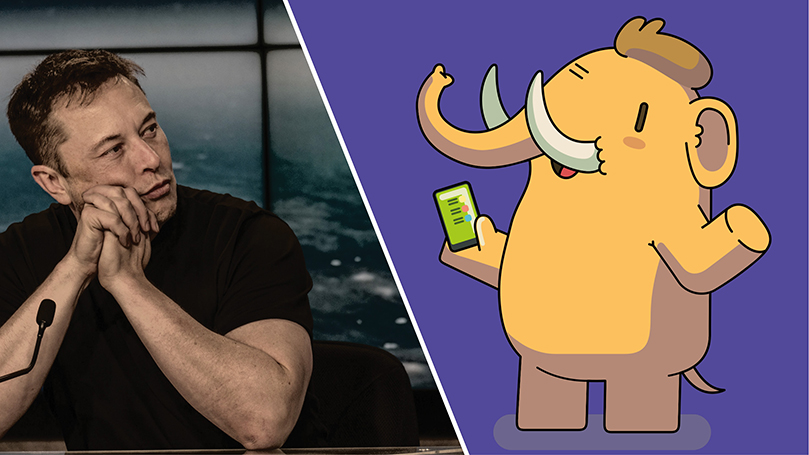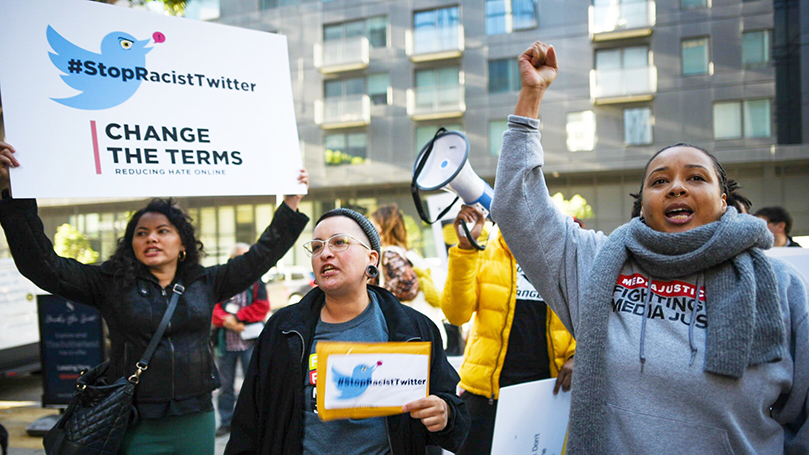
About Musk, Twitter’s new overlord
Elon Musk is a white South African, born to a family who became rich as emerald mine owners during South African apartheid. With his family’s blood-stained wealth, Elon Musk went on to found or insert himself into the development of various companies such as PayPal, SpaceX, and Tesla. With the purchases of Zip2 and PayPal—which Musk was not leading at the time, but which he had large stockholdings in—Elon received nearly $200 million. Musk established SpaceX with $100 million. By early 2006, the company had received $200 million in launching orders from the Pentagon, and received a $1.6 billion contract from NASA in 2008, largely due to privatization schemes established by the Bush administration in 2006. Having bought the position of Tesla chairman in 2004 with $6.5 million, Musk became the richest person alive in early 2021.
While Musk has all the typical characteristics of super-wealthy capitalists, including repeated cases of union-busting, fostering a racist work environment, support for U.S. imperialism, complete avoidance of income taxes, and flaunting the law. He has also become an ally to fascists and the general far-right, such as figurehead Andy Ngo and the broader MAGA community. On October 27, 2022, Musk acquired social media platform Twitter for $44 billion.
Musk’s acquisition of Twitter has led to what John Bachtell has called a “fascist free-for-all.” Within days, Musk purged the company, firing half of the company’s staff, destroying entire teams at the company, including the content moderation team. This led to an explosion in racist, anti-Jewish, misogynistic, homophobic, and transphobic content on the platform, alongside the usual spam and harassment. Despite this, Musk did find the resources to suppress left-wing organizers on the platform at the behest of Andy Ngo, continue suppression of DDOSecrets, and unban Neo-Nazi Andrew Anglin, founder of prominent Neo-Nazi website The Daily Stormer.
Mastodon, an alternative to Twitter
As users retreat from Twitter, they are seeking alternative platforms. Emerging as chief among them, with the potential to avoid the rightward drift of privately owned corporations like Twitter, is Mastodon. The website promises a “radically different social network, back in the hands of the people.” The platform is composed of independently run websites called “instances.” People can sign up to create an account with an “instance,” allowing them all the features one would normally expect of a social media platform: posting, favorites (i.e. “likes”), the ability to follow and be followed by other accounts, and so on.
What sets these “instances” apart from typical social media sites is that they employ free and open-source software called Mastodon, built by (but not exclusive to) a non-profit organization of the same name, originally launched in 2016. What makes Mastodon notable is that it allows different Mastodon instances to interoperate as a federated social network. This makes it possible for users from different instances to easily interact with each other as if they were on the same instance. Accounts from one instance may easily like, share, comment, and follow accounts on completely different instances. One way to think of this would be to compare it to telephone: users may sign up with completely different telephone operators (e.g., AT&T, Verizon, T-Mobile, etc.) while still being able to call and communicate with each other, except now with federated social media sites instead of federated telephone networks.

Each instance is independently run with its own rules and policies. This gives administrators the ability to moderate what their users post, as other social media platforms have. However, it also gives them the ability to “defederate” from certain other instances, particularly in cases where harassment, spam, or bigoted content are tolerated. This would be like AT&T having the power to make it so that AT&T users and T-Mobile users are unable to call each other, because T-Mobile allows their users to send spam. If all the other major telephone operators choose to follow suit, T-Mobile would then be practically isolated. In practice, this means that instances run by administrators who condone right-wing extremism can be ostracized from the rest of the Mastodon network and become less valuable for users. The same way an isolated telephone operator would be less desirable to users than a non-isolated one, isolated instances become less desirable to users than non-isolated ones.
Additional details on using Mastodon and how it works can be found here.
What makes Mastodon more democratic
Instances intended for general, public usage (as opposed to an instance operated by a media outlet for their newsroom) have two general models they may fall under: a community model and a corporate model. At the time of writing, it seems the vast majority of instances follow the community model.
In the community model, instances are started and run by either an individual, a team of individuals, or even a non-profit organization of some kind. To maintain an instance, funds are needed for maintenance, server hosting, translation service fees, and living expenses for the instance’s administrator or administrators. Most instances rely on donations to pay for this maintenance, although there are instances where administrators simply run a small instance at their own expense.
The corporate model, in which instances are operated by for-profit companies, is not a particularly viable one. Mastodon is an ad-free platform, so generating revenue from ads is not an option for companies. Generating any real profit from a Mastodon instance is going to be extremely difficult, and so companies have shown very little interest in trying to make for-profit instances, though (seemingly futile) attempts have been made recently by the crypto industry’s acquisition of the pawoo.net instance, which has drawn immense backlash from the broader community, including from many major instance administrators who have argued that cryptocurrency should not, and will not, be welcomed on the platform. As noted in the linked post, many Mastodon administrators have already chosen to ostracize these acquired instances.

Another component of this discussion is that Mastodon gives accounts the ability to easily migrate to a new account on a different instance at any time, exporting their posts, followers, and followings, favorites, bookmarks, etc., without losing anything from their old account. And unless the old account is taken down by the instance, their old account can even redirect to their new account. That’s all to say that there is very little stopping users from abandoning one instance for another because they object to any policy of the instance, including accepting right-wing extremism or even attempting to introduce advertisements.
In its very structure, Mastodon represents a massive shift away from centralized, privately-owned social networks—which, in the case of Musk’s Twitter, can and will be weaponized by capitalists against the modern socialist movement—and towards a federated, community-owned alternative, an alternative much harder for the bourgeoisie to wield in their favor. With centralized, privately-owned platforms, power ultimately lies with the stockholders. With Mastodon, power lies with the people.
Admittedly, the community-owned model is not perfect. A platform under true social-ownership would be better in many ways; however, this technology has the potential to facilitate working class empowerment. While Twitter is purging anti-fascists from their platform, Mastodon is keeping anti-fascists connected and platformed. Mastodon offers a democratic social-networking alternative for millions, likely for the first time in their lives. Had Mastodon not been started back in 2016—before Musk bought Twitter and accelerated the demand that Mastodon would eventually fill—it would not have been in the position to fill that role earlier this year. We must be proactive in our support for free and open-source software capable of empowering the working class, of building more democratic systems. Mastodon is one of many projects with this kind of potential, and it is our responsibility to support and lead further work in the tech space.
For readers looking to join Mastodon, it is recommended that you find an instance that personally suits your needs and aligns with your ideals. You can find a directory of instances on Mastodon’s website here, including links to each website where you can then sign up for an account. After making an account, I also recommend those financially able sponsor a chosen instance, who will usually have a link to a Liberapay or Patreon page on their about page, as well as sponsoring Mastodon development by becoming a Mastodon patron on their Patreon.
The opinions of the author do not necessarily reflect the positions of the CPUSA.
Images: Elon Musk by Daniel Oberhaus / dmoberhaus (CC BY 2.0) / Mastodon Mascot (Greeting) by dopatwo (AGPL via Wikimedia Commons); Protest: #StopRacistTwitter IMG_0595 by Free Press/ Free Press Action Fund, modified for brightness (CC BY-NC-SA 2.0); Twitler by Doran, modified for brightness (CC BY-NC-ND 2.0)


 Join Now
Join Now